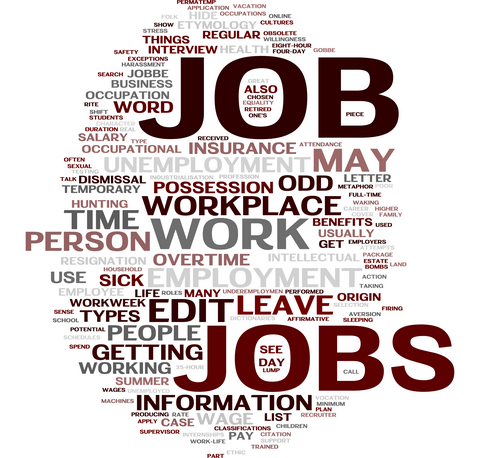The job interview is one of the most important meetings in life.
Why? Because being successful in a job interview has a direct impact on a person’s work/life balance, their stress and motivation levels, potential salary earning which links to the person’s lifestyle.
So, it makes sense to prepare for this highly important event.
This article will cover everything any job seeker and career professional needs to do to prepare for the job interview.
To help job seekers find employment, we will link to relevant articles under each of the interview sub-headings allowing each interviewee to read the source article for a more in-depth understanding of each job interview topic.
What to wear to a job interview
Your outfit is your armor.
What you wear in a job interview makes a difference in two distinct ways: 1) ‘dress to impress’ increase personal confidence levels, 2) a professional look changes the employer’s initial impression of a candidate.
Down to basics:
Wear smart professional clothing.
What an applicant wears influences the interviewer’s first impression of a candidate. Interviewer’s, as does everyone, has ‘unconscious bias’ – an opinion is made based on how one person views another. Research shows how an interviewee’s outfit can create a positive or negative opinion.
The ‘professional look’ can only help to increase likeness.
Avoid:
- Unironed clothes
- Casual wear
- Not shaving
- Dark colours
- Getting caught in the rain (resulting in you looking helpless)
There is something about the choice of clothing that affects the emotional state. Dressing in gym wear, as an example, will result in a person being more likely to complete exercise. In the same sense, dressing confidently creates confidence.
Source: what to wear for an interview
What you need to research before a job interview
Pre-interview preparation creates perfection
Prior to the job interview, there are 2 must research objectives: 1) company research 2) interview question research.
Initially, applicants need to research the organisation to ensure that this is a position they would like to accept, once offered the advertised role.
3 key facts that affect workplace happiness
- The company – does the company vision and values align with your own?
- The boss – does the boss’s managerial style motivate you?
- The co-worker(s) – does the company culture draw you in?
The pre-interview research on accepting a hiring decision can save time – only attend the interviews with employers you are interested in.
Once an applicant knows which organisations they are interested in, the next step is to prepare for the job interview by researching the potential job interview questions.
- Check potential questions by reading the job profile for the advertised role. Each essential duty will be referenced as a job interview question
- Use the internet to search for the organisation asked out the box job interview questions
- Plan your interveiw stories as storytelling interview answers often rate higher on the job interview scorecard
Source: questions to ask before accepting a job
How to plan for the interview
The initial interview planning is based on the type of job interview the candidate has to attend.
Job interview types include:
- Screening Interviews
- Video Interviews
- Panel Interviews
- Structured Interviews
- Group Interviews
Understanding how each job interview is different gives the pro-active job seeker an upper hand. As an example, most screening job interviews are conducted over the telephone.
The interview itself needs planning for. For an online interview, ergonomics is key. A clear background, eye-level screen and clean space, not only helps the applicant feel relax, there are no visual distractions for the interviewer.
A common mistake career professionals make is their interview preparation. Most job seekers will check the duration from their home to the interview establishment, this is good, pro-active. But the mistake is made at the time of night they choose to prepare for the job interview.
Most people prepare for interviews at night and plan, using an online map, the duration of travel. But if the job interview is scheduled early in the morning, the duration to the venue can change, as travel times vary depending on the time of day.
The barrier here is that a late applicant creates a negative impression that distorts how the interviewer views the applicant during the course of the job interview. Is easy to make error can have a lasting effect on the job interview.
Source: types of job interviews
How to prepare for the first impression
The first impression defines the rest of the job interview. The initial barrier is the interviewers unconscious bias, and then their reaction to how they perceive the applicant will perform once employed.
The initial impression is formed by the senses taking in billions of pieces of information, which is then filtered by the interviewers values, beliefs and experiences, resulting in an impression being created within milliseconds of the interviewer coming face to face with the candidate.
These 5 factors affect the initial impression:
- An applicant’s smile – smiling helps build rapport. Research has shown how a smile improves likeability
- What the candidate wears – association from clothes to persona is powerful. If you dress ‘professionally’ you will be seen as a ‘professional’
- The firmness of the handshake – a firm handshake shows strength and confidence, both of these traits improve how an employer views an applicant
- Eye contact – strong direct eye contact shows confidence. Weak people will often look down or away. Employers for all job roles are looking for confident employees who can make decisions and take action
- The level of confidence in communication – asking questions, varied tonality, a strong pace are all ways to communicate confidently. Confident communicators score well in job interviews as they are able to give answers that reference the job criteria
Source: Make a good first impression
How to reduce interview anxiety
Job interview anxiety is the number one reason why job applicants fail in job interviews. A lack of confidence can only result in a poor job interview performance.
Confidence can be improved. The biggest barrier to self-doubt is comparison. Often employees will compare themselves to another colleague prior to the job interview. This behaviour is unhealthy and effects the nervousness level in a job interview.
The comparison leads to self doubt. Self doubt, is extreme cases, lead to some career professionals finding excuses not to attend the job interview, and those that do often perform badly.
Confidence in the job interview can be improved by making a few tweaks to your thinking. Having self-appreciation instead of self doubt increases self-esteem.
For career confidence, listing your achievements, your skills and abilities change the focus of thinking, helping applicants to realise their worth, improving their self-worth.
Source: how to boost self-confidence
What to do to stand out during the job interview
The competition for the advertised position is competitive as everyone attending the job interview has a similar level of skills, experiences and qualifications, at the minimum the applicants all meet the job criteria or they wouldn’t have been invited to be interviewed.
What this means is that you need to stand out in the job interview.
First, is the basics; having killer answers to tricky job interview questions but more importantly successful career professionals need to go one step further.
A simple and underplayed stand out tactic is being enthusiastic.
Think about it! Most interviewees are nervous, resulting in standard job interview answers communicated in a monotone voice. If the next interviewer delivers strong interview answers, delivered with passion and enthusiasm, they will grab the employer’s attention.
Creating an interview conversation, rather then just answering questions is enough to be uniquely, as is bring evidence of your expertise in the form of stats, graphs and references. Having a growth mindset, showing you can take the initiative and simply becoming confident create a string persona because most applicants are, well, nervous wrecks.
Source: stand out in a job interview

The pre-interview checklist
- You know the date and time of the interview
- The interview venue, building name and room number is correct
- A copy of the application, ID and certificates have been prepared
- Research on the organisation has been completed
- Potential interview questions have been researched
- And answers to interview questions have been prepared and researched
- For online interviews, the room ergonomics have been reviewed and for face to face job interviews, the duration to the venue has been checked
- The interview type has been checked and actions completed to ensure confidence levels are high for all interview types
- A self-review of industry skills has been completed to increase confidence
- Many mock interviews have been completed, as practice makes perfection















